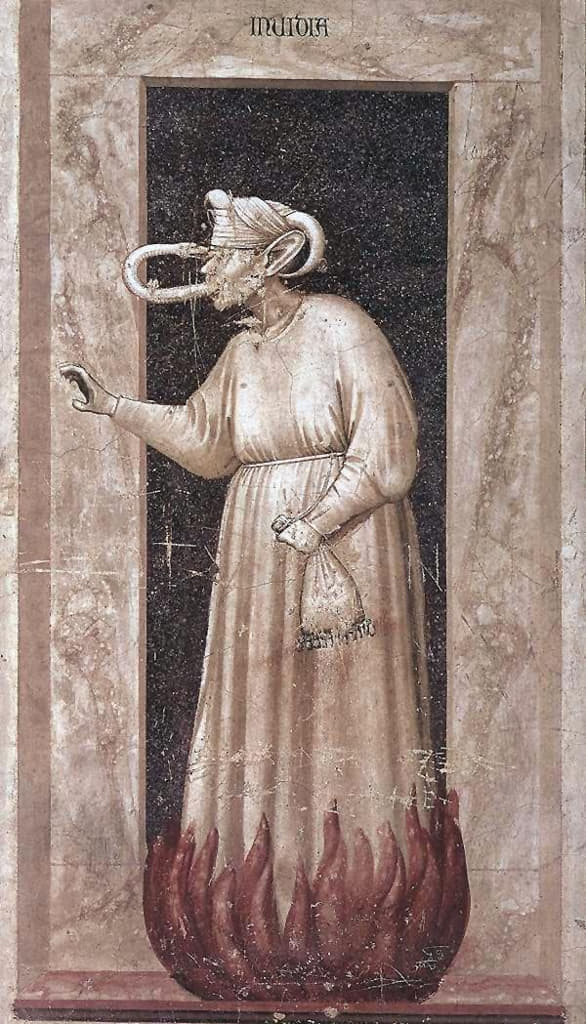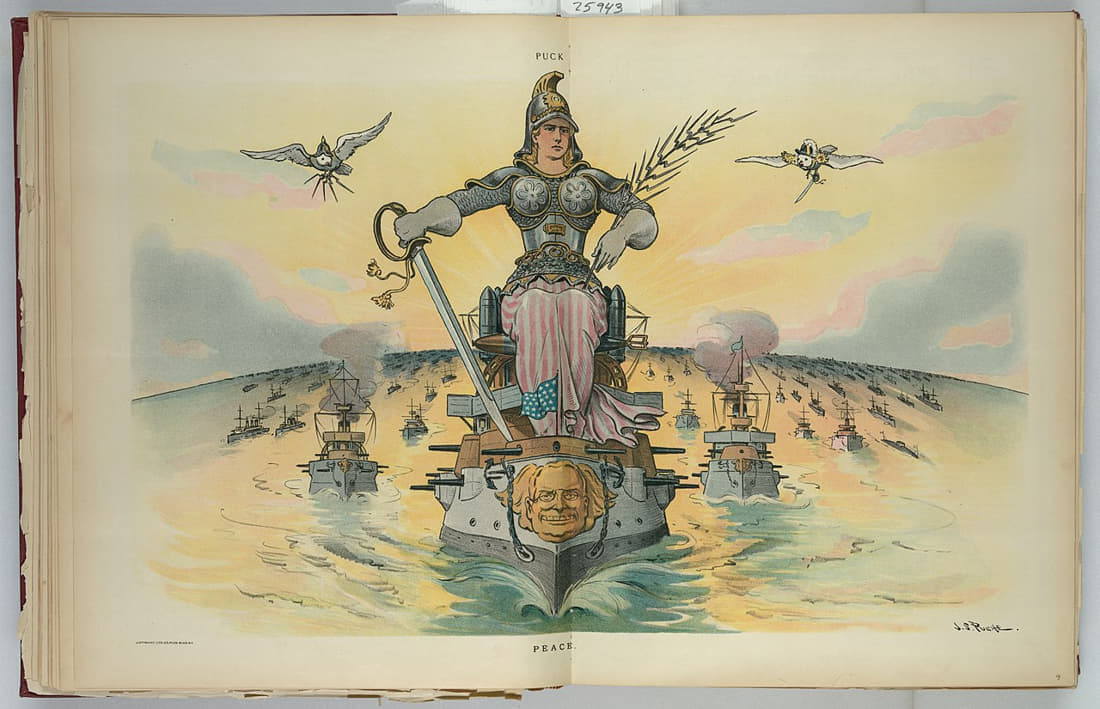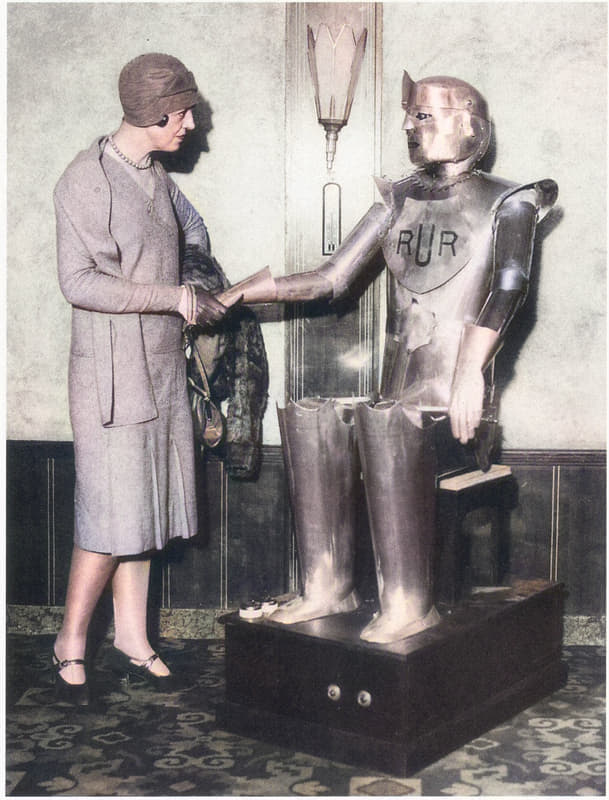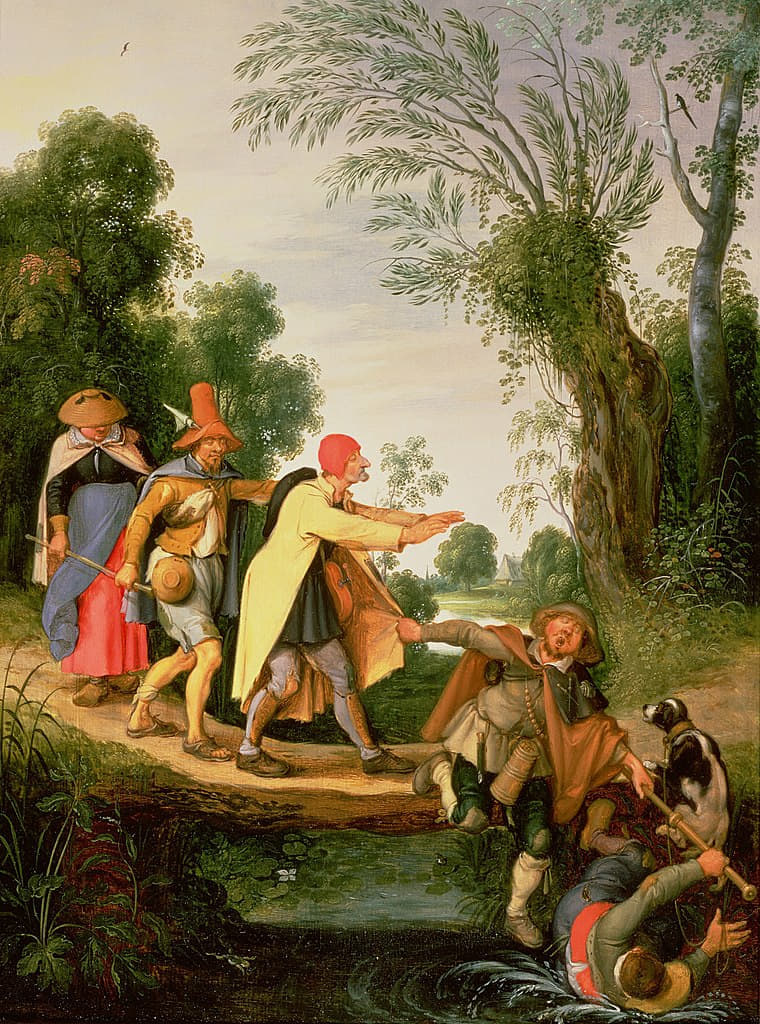Paraphrasing Ernst Jünger, it seems undeniable that we are at the midnight hour of history, and that, the clock having already struck twelve, we contemplate in the twilight the contours of what has not yet been unveiled, or what is the same, in the words of Antonio Gramsci: “the old world is dying. The new is slow to appear. And in that chiaroscuro monsters emerge.” Engaged in a blind flight forward, we barely glimpse, from the desolation of wars and general bewilderment, a future without a proper name or defined features, which, when we try to apprehend it, fades away, ungraspable, in the mist of our own demons.
This midnight, an instant full of signifiers, and emptied of meanings, makes our fortunes emerge from the lack of intentions, and the randomness of the lack of reasons, resulting in living for the sake of living, beating around the bush, Macbeth’s ” petty pace from day to day;” the tale of a fool, full of noise and fury, signifying nothing.
A consequence, in fact, of having renounced some time ago to fight the battle of ideas, in exchange for the single thought that pays obeisance to the golden calf of profit and loss accounts and pursues the myth of commutative justice, based on social relations mediated by normative and contractual links, which, although they protect us to freely carry out individual transactions and mercantile interactions between people, overlook the personal and moral dimension of human interactions; dignity and rights in personal relationships, in order to, turning Wittgenstein on his head (Tractatus Logico-Philosophicus, 1.1), enthusiastically accept that the world is the totality of things, not of facts, which we detest to the point of fabricating tailor-made “alternative facts.”
It would seem that we have taken Theodor Adorno so literally (“after Auschwitz there is no place left for poetry”) that we have immersed ourselves in legalistic prose to normativize the moral, perhaps because, as Erich Fromm said, we take refuge in political structures and legal systems that provide us with peace of mind by sparing us from personally facing the consequences of ethical judgments, and so we let the asepsis of the civil code be the guide of our social behavior.
We have reached, in short, a state of affairs whose crux was already vehemently answered by Donoso Cortés in his important speech of 1849 (“Discurso sobre la dictadura”), in which he replied to Don Manuel Cortina, then Minister of the Interior, that, faced with the litany of the Government of the time of “legality, everything for legality, everything for legality, legality always, legality in all circumstances, legality in all circumstances; legality on all occasions,” he placed “society, everything for society, everything for society, society always, society in all circumstances, society on all occasions.”
Underlying this statement of Donoso’s principles, so applicable to today, is the conviction that “formal freedoms” are insufficient to maintain stability and justice in society, and that a legal codification cannot serve as a moral basis against injustice and inequality because of its “lack of spirituality” (Geistlosigkeit).
We find, one hundred years later, this same concern for morality as the foundation of life and society in the work of the Madrid philosopher George Santayana, Dominations and Powers, in which, following Donoso, Santayana questions formalist liberalism, centered on adherence to abstract principles and rules, which, by emphasizing the notion that the individual and his rights prevail over society and its needs, weaken cohesion and collective well-being. The Englishman Scruton more recently maintained the same thesis as Donoso and Santayana, affirming that the value of individual freedom is not absolute, but is subject to other higher values that arise directly from the sense of belonging to a continuous and pre-existing social order, which is fundamental in determining the virtue of our actions.
There is in all these assertions a more or less veiled criticism of Pelagianism, the thesis that “the possibility of defection from the good belonged to the essence or perfection of freedom,” or what is the same, the sacralization of the freedom of the will, safeguarding the right of each individual to exercise self-determination, deciding what is morally right, and the conditions for satisfying appetites—rational or irrational—since, whether these are in accordance with morality or transgress it, every personal choice is an expression of free will. This position contrasts radically with the doctrine of the Catholic Church, which holds that freedom makes man a moral subject, responsible for his actions, and that the conscious and deliberate decisions we make as individuals are susceptible to positive or negative ethical judgments (Catechism of the Catholic Church, PART THREE: LIFE IN CHRIST. In: The vocation of man: life in the spirit. Chapter One: The dignity of the human person. Article 3: The freedom of man. Paragraph 1734).
This essential principle is made clear in Pope Leo XIII’s encyclical Rerum novarum, expressly rejecting the idea that consent between employer and worker is sufficient with respect to wages or working conditions: the worker’s freedom does not lie in being able to accept an agreed wage, but in receiving fair remuneration for work that corresponds to his dignity, i.e., “To consent to any treatment which is calculated to defeat the end and purpose of his being is beyond his right.”
We can thus clearly glimpse the ultimate intentionality of the title of Santayana’s book, Dominations and Powers: Starting from this allusion to the angelic order, in which the Dominations form part of the hierarchy of celestial beings, and the Powers play the role of maintaining cosmic equilibrium, as well as overseeing the boundary between the spiritual and physical worlds, Santayana emphasizes the Virtues, which in the aforementioned celestial hierarchy represent moral excellence; purpose, and adherence to universal ethical principles. This position contrasts radically with the premises of Pelagianism already alluded to, on the one hand, and Lutheranism, on the other, insofar as both reaffirm the human capacity to discern religious truth and morality independently.
On the contrary, the philosopher from Madrid argues that genuine values live only in the vertical perspective, in a deeper dimension of human experience that cannot be reduced to a mere by-product of aggregate subjective constructions, but have a profound and universal nature, which Santayana connects with the concept of virtue.
Santayana, who abhors the idolatry of reason and the cult of individual autonomy (which is not without fundamentalisms that advocate being free, even to stop being free, as long as it occurs within the framework of the law), stresses that this Pelagianism made political does not primarily aim at the pursuit of prosperity, but centers its focus on the pursuit of progress; a progress that is closely linked to individual freedom, which implies that each individual has the full capacity to make spontaneous and independent decisions to move in the direction he chooses, supported by those who share his vision, and free from coercion by those who do not.
Ironically, the myth of progress has become a dogma of secularism, endowed with a metaphysical perspective, based on the belief in following a teleological path in pursuit of a higher stage, whose benefits are renounced by those who voluntarily marginalize themselves by not following the direction prescribed by the determinism of transcendental freedom, hypostatized as ultimacy, as an end that dispenses with the use of moral means to achieve it. It is freedom as a fetish; freedom for freedom itself. Against this naïve idealism, Santayana argues that, on the contrary, it is the individual who claims unlimited power over his own life who alienates himself from virtue, because it is virtue, after all, that embodies shared ethical values, interwoven in reciprocity and social interdependence.
Turning again to Roger Scruton, it is worth noting that he, along with the Englishman Philip Blond, holds postulates basically analogous to those of Santayana, as regards the importance of cultivating institutions, culture and traditional values in order to reap the fruits of social cohesion and stability, just as strong roots ensure that the tree bears fruit, according to the popular Vietnamese saying, gốc có mạnh cây mới tốt.
All of these thinkers are supported in a more organic way by Pope Benedict XVI in his encyclical, Caritas in Veritate, emphasizing that without these strong roots, without “social capital,” we fail to understand the underlying causes of social injustice, presenting it as an inevitable and immutable phenomenon that does not concern us, something that leads us to collective irresponsibility and indifference to inequity.
This attitude of detachment manifests itself in the need to justify our own inhumanity to society, rationalizing the lack of charity and compassion, attributing poverty to the fatalism of natural causes. We also tend to assign personal responsibility for misfortune to those who suffer from it, diverting attention from the social and economic structures we use to evade responsibility for their existence. Thus, not only do we tend to blame the most unfortunate, but in an exercise of manifest myopia, we allow impoverishment to become a socially acceptable form of precariousness based on mirages that are often accepted or even desired by those who, although vulnerable, are dazzled by the glitter of a superficially opulent technological society, built on illusory images, disconnected from human existence, behind which lurks a reality hostile to society.
In this regard, the Italian philosopher and thinker Danilo Castellano characterizes these mirages as the tendency to create an illusion of individual freedom and material well-being, disassociating these notions from the complex social interactions and responsibilities that make us human (Castellano, “Qué es el liberalismo,” in Verbo, 489-490(2010), pp. 729ff).
The Italian argues that the emphasis on subjectivism as an axiological foundation generates results contrary to the ideals it proclaims, since in practice, the exaltation of the drive to submit reality to the will in order to shape it according to subjective desires ends up making us too human, to the point of distancing us from the Aristotelian “rational animal” (Aristotle, Politics, 1253: “The human being is a ‘political animal’ because he has logos”: διότι δὲ πολιτικὸν ὁ ἄνθρωπος ζῷον, δῆλον… λόγον δὲ μόνον ἄνθρωπος ἔχει τῶν ζῴων), in order to satisfy the irrational part of our nature, disintegrating along the way our human condition, reducing it to a set of disjointed impulses, which makes good Hume’s statement that “Reason is, and ought only to be the slave of the passions, and can never pretend to any other office than to serve and obey them” (A Treatise of Human Nature, 2.3.3 p., 415). But what this implies, in fact, is to separate desire from any other element, such as the good, reducing wanting to a purely instinctive force; unreflective, which is equivalent to equating wanting with power, thus distorting the capacity to want the good and to be able to desire it.
All of which ultimately leads to Nietzsche’s “will to power,” which focuses on seeking power for the sake of power itself, without the need to attain something additional such as truth or value. What is pursued is the ability to will and to have the capacity to desire more, which implies an increasing relationship between will and power—to seek more power in order to desire more. This notion includes wanting not only what is desired, but also the act of desiring itself, with the purpose of increasing the capacity to desire, or desire itself as a form of power.
None of this escaped the insightful Santayana, who noted that, although the ideal of the cult of reason does not lie in a return to nature, if the inherent premises of transcendental freedom are taken to their ultimate consequences; animals—especially non-gregarious ones—could be granted a status of perfect freedom, because these beings follow the dictates of their inner impulses completely and unrestrictedly, enjoy complete autonomy of consciousness and expression, and are intrinsically motivated by their own interests.
That is, they are precisely in that “state of radical independence and autonomy” to which Hobbes alluded, to justify the need to codify human relations by means of a social contract in which people give up much of their individual freedom in favor of sovereign government, in exchange for security and order necessary, for negative liberty and free trade.
Santiago Mondejar Flores is a consultant, lecturer and columnist on geopolitics and international political economy. This article appears courtesy of Posmodernia.
Featured: Invidia (Envy), by Giotto; painted in 1306.






